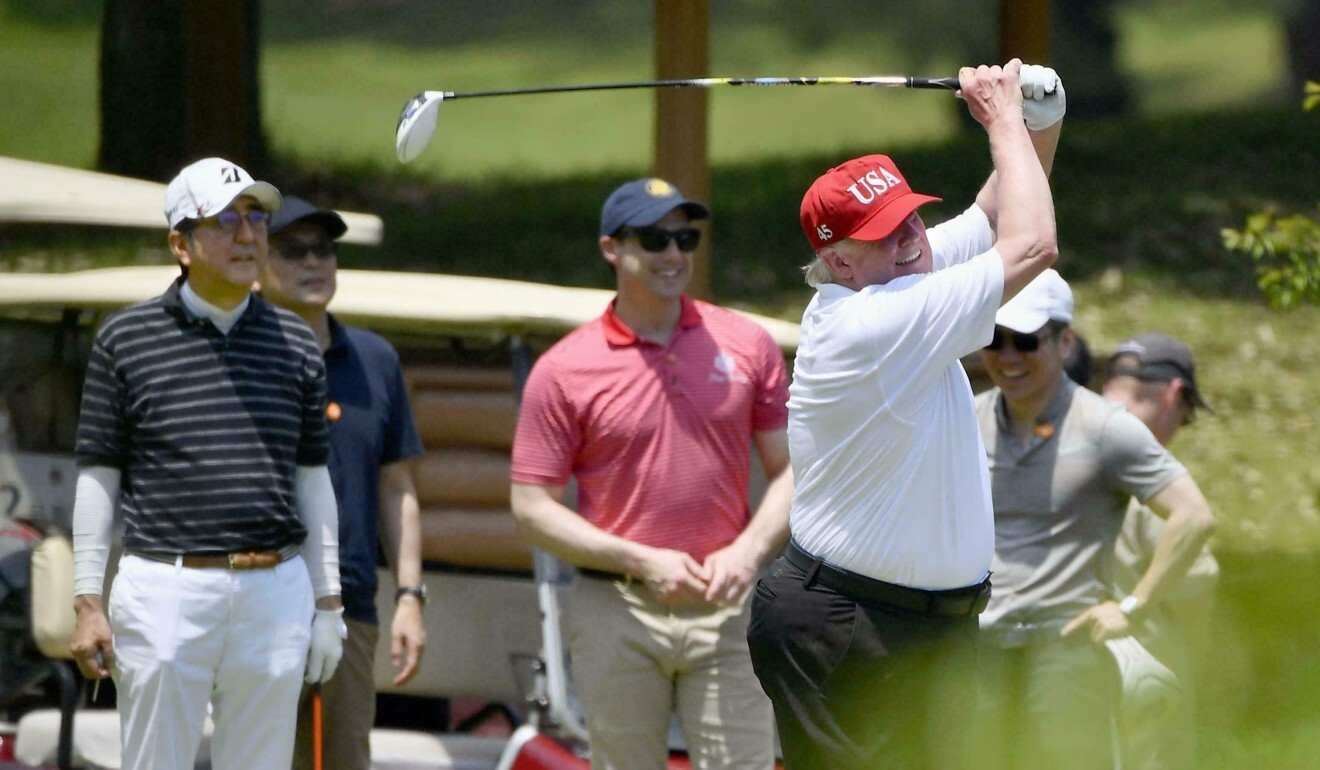
Donald Trump calls Shinzo Abe greatest PM in Japan’s history
- During a phone call with Abe, the president said the US-Japan relationship was stronger than it has ever been.
- Abe also explained his decision to resign to Russian President Vladimir Putin
The two men spoke at length, and Trump told Abe he had done a “fantastic job” and that the relationship between their two countries was stronger than it has ever been, White House spokesman Judd Deere said in a statement.
Abe told Trump that a strengthening of the two nations’ alliance will remain in place even after his departure, a Japanese government spokesman said on Monday.

02:19
Japan’s Prime Minister Shinzo Abe resigns for health reasons
In a phone call lasting about 30 minutes, Abe explained his decision on Friday to resign as prime minister, the government said.
The two men built a rapport since Trump came to power and have played several rounds of golf together.
What is ulcerative colitis, cause of Abe’s resignation as PM?
Abe and Putin reaffirmed their countries’ commitment to continuing bilateral negotiations toward signing a post-war peace treaty, which has been hampered by a decades-old territorial row over Russian-held islands off Hokkaido.
Putin praised Abe for making great contributions to removing obstacles between the two countries, according to the Japanese government. Abe explained his resignation and said he hopes active talks will be held in the future toward resolving the territorial issue.
At the end of the 20-minute teleconference, Putin said “arigato,” thanking Abe in Japanese, while Abe reciprocated in Russian, “Vladimir, spasiba,” according to the government.
What to know about the islands at the centre of a territorial dispute between Russia and Japan
Abe will remain in office until his successor is chosen. The ruling Liberal Democratic Party, led by Abe, is considering holding a leadership election on September 14, party lawmakers said.
The combined investments were valued at more than US$6 billion after shares of all five companies jumped at least 5 per cent in Tokyo trading on Monday.

“I am delighted to have Berkshire Hathaway participate in the future of Japan and the five companies we have chosen for investment,” Buffett said in the statement. “The five major trading companies have many joint ventures throughout the world and are likely to have more of these partnerships. I hope that in the future there may be opportunities of mutual benefit.”
Japan PM race starts, as ally and critic gun for top job
Japan’s general trading houses, known as “sogo shosha” with roots dating back hundreds of years, supply the resource-poor country with everything from natural gas to noodles, and have spent the last few decades transforming into conglomerates that hold equity in hundreds of diverse companies around the world. While they operate in areas like textiles and machinery, they still derive much of their revenue from energy, metals and other commodities.
Berkshire plans to hold the Japan investments for the long term and has pledged to only own as much as 9.9 per cent of the shares in any of the five companies, unless given specific approval by the investee firm’s board of directors, according to the statement.
Additional reporting by Kyodo, Bloomberg

